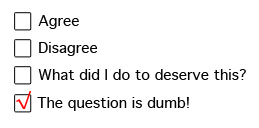Lately I have been looking into WebRTC which is an open standard for real time communication between browsers. It allows communication styles in the browser which previously were not possible.
WebTorrent uses WebRTC for a protocol similar to bittorrent. Instead of having to download a program or install a browser plugin, you can download a webtorrent (which currently must be seeded as a webtorrent, by forexample instant.io) directly in the browser.
To test Webtorrent, I made a small javascript project. WT-widgets, is a collection of graphics for starting webtorrent downloads and showing download progress. Below is an example where you can download Artifact for Mac OS X using webtorrent.
No seeds
If there are no seeds, you can seed the file yourself by visiting the differently styled button below. This button uses a feature of WT-widgets that does a fallback to XMLHttpRequest after 5 seconds. When it is finished downloading the file, it will start seeding. Then the first button should work, since there is a seed.
The file will be downloaded in your browser, and you can then copy it to your filesystem by clicking the link that appears when the file finished downloading. This does not follow the usual download flow, so one of the aims of WT-widgets is to ensure that it clear to the user that a download is happening. I am not sure how well my widgets succeed in that regard, as my current widgets might not be the best at communicating that there is a download happening.
Suggestions or pull requests with fixes/additions are always welcome. I hope to expand WT-widgets with some widgets that show progress horizontally, as well as some widgets that more clearly show when it is in the different states of a download.
What Webtorrent sorely needs
While seeding in the browser works great, I do not want to have a browser fired up at all times to ensure there are seeds for my content. The best option I found for seeding webtorrents was webtorrent-hybrid, but when I tried it, I sadly could not get it to build.
Once Webtorrent has a solid solution for server side bootstrap seeding, I think it is will become a great alternative for distributing some kinds of content.



